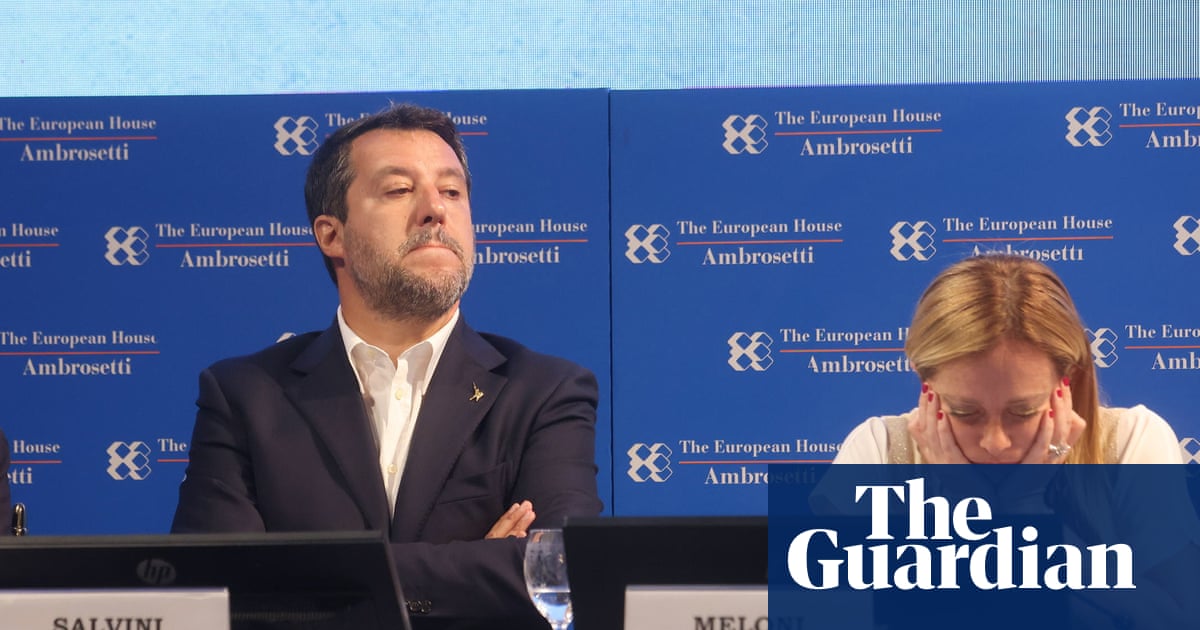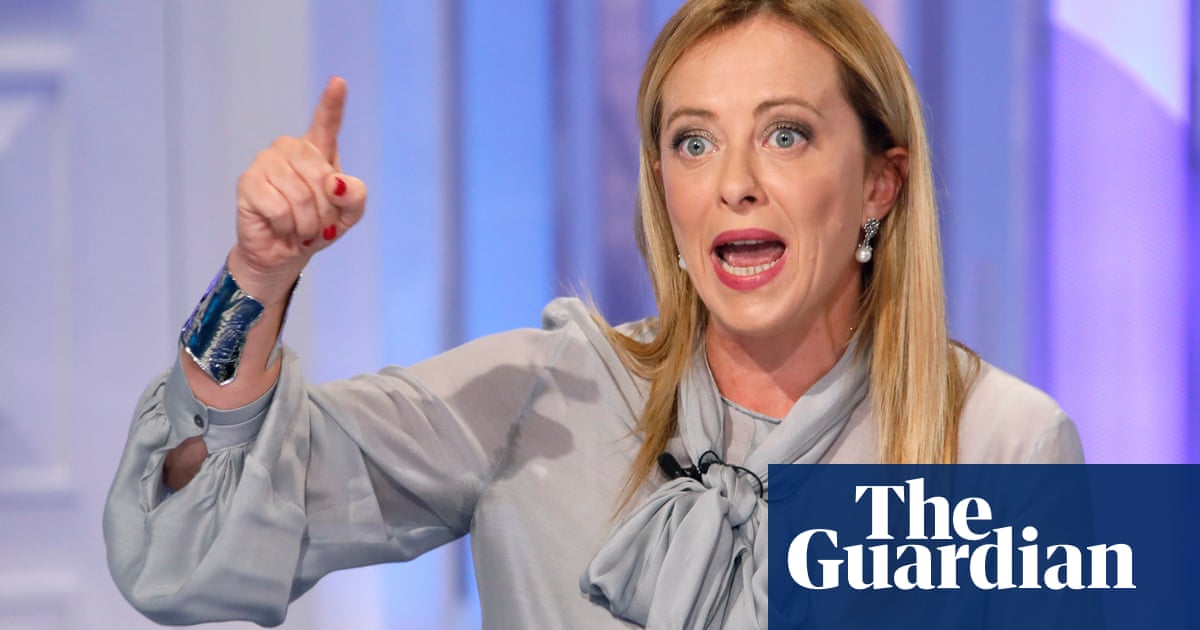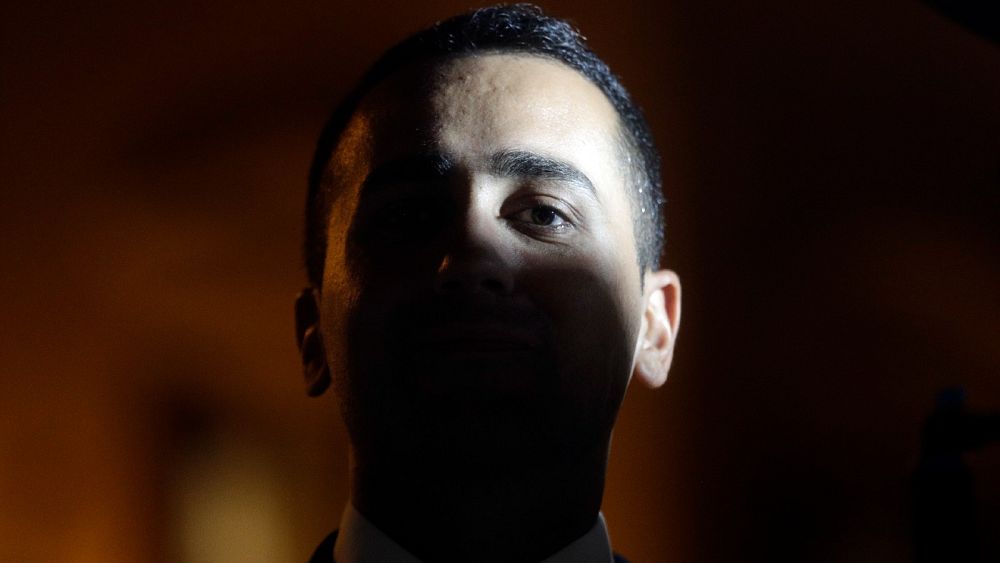This is the coalition highest in the polls at present. The diversity of opinions between its members, with all three wanting to be the new prime minister, defies a transparent understanding of the alliance’s identity.
While Berlusconi claims to be more moderate than the other two and to promote liberal and filo-european values, he has very strong ties with Russian President Vladimir Putin. Meloni and Salvini are the most radical part of the Italian right, and in many important areas fall to the extreme right.
In advance of the 25 September election in Italy, Giorgia Meloni, Silvio Berlusconi and Matteo Salvini have formed a coalition in the hope of gaining the electoral support needed to control Italy’s next government. While they describe their coalition as “center-right,” most everything centrist in either their proposed action plan or the views they’re now presenting runs contrary to their actions and statements of the not-too-recent past.
For that reason, we are letting the totality of their history describe who they are and how they would govern. That is, to the extreme right.
Coalition members:
- Giorgia Meloni, president of Fratelli d'Italia (populist, right to extreme right)
Formerly: Deputy of the Italian Republic, Vice-President of the Chamber of Deputies (Italy), Youth
Minister in 4th Berlusconi government (Italy).
Education: High school diploma
Positions and controversies: Opposed to same-sex marriage and civil unions, abortion, legalization of
marijuana, and immigration for non-European immigrants. Supports both gender and “replacement”
conspiracy theories. Has never completely disavowed her party’s neo-fascist roots, and has spoken in
support of Mussolini.
- Silvio Berlusconi, president of Forza Italia (right)
Currently: media and finance magnate (6th wealthiest in Italy)
Formerly: Member of the European Parliament, Deputy of the Italian Republic, Senator of the Italian Republic, President of the European Council, and President of the Council of Ministers of the Italian Republic (Prime Minister).
Education: University of Milan (law)
Controversies: Charged in more than 20 legal cases involving tax fraud and money laundering. Ownership and control of much of Italy’s media networks, limiting free expression and the plurality of information. Close friendship with Russian President Vladimir Putin. While in office, accused of having passed laws (19 of them) that either gave him and his companies economic benefits or shielded him from criminal prosecution.
- Matteo Salvini, secretary of Lega (populist, right to extreme right)
Currently: Senator of the Italian Republic
Formerly: Deputy of the Italian Republic, Interior Minister (Italy), Vice-president of the Council of Ministers of the Italian Republic, and secretary of Lega.
Education: High school diploma
Controversies: Anti-immigration and Euroskeptic. Opposed to civil unions, gay marriage, legaization of marijuana and euthanasia. Supports legalizing prostitution. Supports Donald Trump and his policies, Steve Bannon’s populist movement, and economic cooperation with North Korea. Subscribes to the American right’s idea of a “replacement” conspiracy theory. Supports and often praises Russian President Vladimir Putin, and is opposed to sanctions against Russia (declared that he preferred Putin to the Italian President Mattarella).
La fragile alleanza della destra
Il programma presentato dalla coalizione del centrodestra, formato dalla triade avente al suo interno Fratelli d’Italia, Lega e Forza Italia con l’appoggio del partito noi moderati, presenta un programma molto variegato (in linea con le plurime anime al suo interno) ma che presenta tematiche su cui gli interessi degli attori coinvolti non possono che essere discordanti.
All’interno del programma si può dedurre facilmente come vi siano indubbiamente dei temi dove sia riscontrabile un intento comune, principalmente in ambito di politica economica interna, della tutela e ampliamento delle forze dell’ordine e il sostegno all’istituzione famiglia.
- In ambito di politica economica, le principali manovre paventate all’interno del programma dimostrano forti intenzioni di tagliare la tassazione verso imprese, famiglie, lavoratori autonomi e pensionati (praticamente tutte le categorie possibili), tramite il modello della flat tax. Queste tipologie di intervento che sicuramente sarebbero mirate a trainare il paese verso una crescita economica, ma che contestualmente hanno l’evidente problema di non aver qualsivoglia copertura economica per l’attuazione delle stesse, rendendole impossibili sia per motivazioni Costituzionali che comunitarie. A cui si aggiungono le grandi infrastrutture, tra cui, per l’ennesima volta, è stata rilanciata la costruzione del ponte sullo stretto e l’ampliamento delle connessioni ferroviarie specialmente per il Sud, ma come per le manovre macroeconomiche non vi è alcuna indicazione su quali risorse possano essere impiegate per il raggiungimento di tali scopi.
- Per le forze dell’ordine, vi è un chiaro intento di portare ad un ampliamento dell’organico e delle tutele che le stesse hanno durante lo svolgimento delle proprie attività lavorative, ma non vi sono chiare proposte per un tema fondamentale come il contrasto alle mafie.
- Invece, per la famiglia, che per dei partiti che si professano fortemente cattolici, risulta essere una delle tematiche a cui è stata rivolta un’elevata attenzione al fine di tutelarla. Gli interventi che vengono pensati sono rivolti al sostegno della natalità, tramite sostegni economici alle famiglie sia per le spese dei figli che per l’acquisto della prima casa, a cui si aggiungono tutele e supporto per le madri lavoratrici.
- Ma di contro vi sono due temi fondamentali su cui il programma sembra molto fragile, a causa delle difformi anime al suo interno, nello specifico i temi contraddittori sono il ruolo dell’Unione Europea e il posizionamento dell’Italia all’interno dell’attuale contesto geopolitico mondiale.
- Per quanto riguarda l’abito europeo, il nodo centrale è il PNRR e di come la coalizione voglia andare a ridiscutere in sede della Commissione Europea l’uso delle risorse assegnate all’Italia, ma senza specificare quali aree economiche voglia andare ad interessare questo cambiamento e soprattutto quali garanzie si possano presentare per effettuare tali cambiamenti, data la posizione contrastante che soprattutto Lega e Fratelli d’Italia hanno ripetutamente espresso verso tale istituzione.
Ma a preoccupare è soprattutto il posizionamento geopolitico, in quanto anche se viene dichiarato l’intento di ottenere per l’Italia una centralità come interlocutore per i principali attori a livello internazionale, non è definito come tale posizione debba essere raggiunta. Invero, all’interno dell’analisi non si può non notare come contestualmente in questa coalizione vi sia una dicotomia di posizioni, in quanto è presente un partito come Forza Italia che ha una natura fortemente atlantista, ma contestualmente anche la Lega, che sempre più mostra un’anima filorussa. Fratelli d’Italia, che soprattutto a livello geopolitico, nonostante il quasi certo primato elettorale che sta per ottenere, non sembra essere in grado di gestire ed essere ago della bilancia di questa questione, andando così a generare una situazione di alta instabilità che in maniera specifica per la questione Russo-Ucraina potrebbe generare delle crepe insanabili per un Governo duraturo. Le ombre di un'interferenza russa nella caduta di Draghi, che ha visto le critiche a Berlusconi e il ritiro del suo partito dal governo, coincidono con un lungo colloquio con un ambasciatore russo, lo stesso giorno della caduta del governo. A maggio, un ambasciatore russo ha interrogato Salvini sul suo possibile ritiro dal governo Draghi. Questi eventi non solo mettono in dubbio la veridicità delle successive elezioni, ma risultano anche dannosi per l'atlantismo promosso da Giorgia Meloni nella sua campagna elettorale.
Il programma brevemente analizzato, inoltre, non presenta chiari e/o specifici intenti all’interno di due temi fondamentali, come la scuola e ambiente, che vengono trattati quasi come questioni secondarie, ma che un paese già fortemente arretrato rispetto agli altri Stati dell’Unione Europea non si può permettere di attuare politiche non performanti o addirittura non adottarne affatto.
The Right: a fragile alliance
The center-right coalition, formed by Fratelli d'Italia, Lega and Forza Italia — with support from the We the Moderates party — offers a diverse platform. While the diversity of the proposed policies are in keeping with the multiple politicians within the coalition, they involve issues on which the actors involved cannot but disagree.
- Within the program, one can see where there is agreement on some issues. These are mainly in the areas of domestic economic policy, the protection and expansion of law enforcement, and support for the institution of the family.
- In the sphere of economic policy, the program supports the use of a flat tax to cut taxes in practically all categories — for businesses, families, the self-employed and pensioners. While such changes in the tax system could claim to pull the country toward economic growth, the coalition has the obvious problem of not bothering to show where the money would come from — making it impossible on both Constitutional and EU grounds. Added to this are major infrastructure projects, including for the umpteenth time the construction of a bridge over the Strait of Messina and the revival of expansion plans for rail connections, especially for the South. As with the tax proposals, however, there is no indication of what resources can be used to achieve those ends.
- Law enforcement: a proposal to expand the personnel and protections for them in the line of duty. No clear ideas for combating mafias.
- The family is given a high level of attention, which is expected from parties that profess to be strongly Catholic. They propose measures to increase the birthrate through economic support to families for child expenses, purchase of a first home, and other support for working mothers.
- Education and the environment: The program lacks clear intent on these two key issues, which are treated almost as secondary ones. However, with the country already lagging far behind other European Union states, Italy cannot afford to avoid addressing them seriously.
- There are two fundamental issues on which the coalition appears extremely fragile, due to disagreement among its members: the role of the European Union, and Italy's current geopolitical positioning.
- Regarding the EU, the central issue is the PNRR (Italy’s recovery and resilience plan), and how the coalition proposes reopening discussions with the European Commission on the use of resources allocated to Italy. The coalition does not specify the economic areas it wishes to address, nor what guarantees can be presented to make the changes (given the conflicting positions that Lega and Fratelli d'Italia have repeatedly expressed about the EU).
Most concerning, however, is the coalition’s stance on the geopolitical positioning of Italy. Although they state their intent to make Italy a key interlocutor at the international level, it is not defined how such a position is to be achieved — particularly as this coalition is already viewed with skepticism by many in the EU Commission.
One cannot fail to notice the dichotomy of positions in this coalition. We see Forza Italia, which is strongly Atlanticist, but also the Lega, which increasingly shows strong pro-Russian leanings. Despite the electoral supremacy that Fratelli d'Italia is likely to have over its other coalition members, it does not seem to be able to balance the scales on this issue, which results in a highly unstable coalition. The Russian-Ukrainian issue alone could generate irremediable cracks for a lasting government.
A final but important note: There is the shadow of Russian interference in the fall of Mario Draghi’s government, having started with Silvio Berlusconi. The withdrawal of Berlusconi’s party from the Draghi government coincided with a long talk he was reported to have had with the Russian ambassador that same day. The previous May, the Russian ambassador had also questioned Salvini regarding the possibility of his own withdrawal from the Draghi government. Particularly given the neofascist history of Meloni’s Fratelli d'Italia, these events are causing concern for many as to Vladimir Putin’s influence and control over any potential center-right government in Italy. They also call into question the credibility of the coming elections, as well as the truthfulness of Giorgia Meloni in claiming she now supports Atlanticism.
Bottom line from around the world:
From the Financial Times, 18 August 2022:
“It would be a stretch to say the Brothers are a fascist party, but fascists are in it.”
From The Guardian, 8 Sept 2022:
“While Meloni has said Italy will continue to support Ukraine, a hard-right coalition would be bound to raise questions about Italy’s policy, given Salvini and Berlusconi’s previous ties with Vladimir Putin’s Kremlin.
With growth slowing and inflation rising, Meloni lacks the experience and the credibility of Draghi when it comes to managing Italy’s stagnant, high-debt economy.”
And from Bloomberg, 16 August 2022:
“Deviating from the former prime minister’s roadmap … will surely lead to market turbulence…The European Commission would probably freeze payments out of the pandemic recovery fund if Rome unwinds reforms or refrains from implementing agreed-upon ones.
She’s (Meloni) trying to soften her image on the international scene, suggesting her party does not pose a threat to democracy or Italy. But it is not clear how long she can play a double game that appeals to her base at home and matches the expectations of investors abroad. That’s the fine line that the future of Italy is hanging on.”





